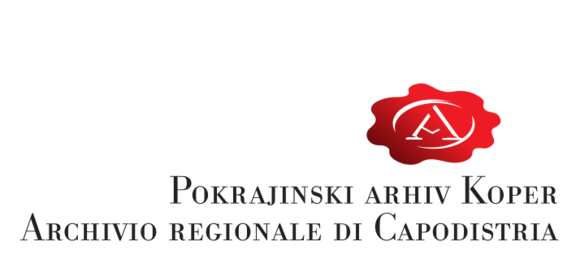Difference between revisions of "Regional Archives Koper"
(mwtool_article) |
(mwtool_article) |
||
| Line 90: | Line 90: | ||
[[Category:Archives & Libraries]] | [[Category:Archives & Libraries]] | ||
[[Category:Architecture_archives_&_libraries]] | [[Category:Architecture_archives_&_libraries]] | ||
| + | [[Category:Archival_&_librarian_education_and_research]] | ||
Revision as of 00:26, 19 February 2021
History
The emergence of the Koper archives as a specific cultural institution is associated with the former city library. Its beginnings date back to 1868. When the library won space in the city hall in 1900, the archives gradually increased. In 1925 the city library and its archives moved into the early-17th-century Belgramoni-Tacco Palace, which already housed the former City Museum for History and Art.
During the war in 1944 the Commission for the Protection of Cultural and Artistic Monuments sent away almost the entire collection of materials from the archives of the old municipality of Koper (dating from 1800) and general records from 1800 to 1840. The materials were taken to Trieste and then to Venice, where they are still located today.
In 1953 at the initiative of the Historical Society of Koper, the archives were separated from the city library. The City Archives Koper were founded three years later. In 1967 they were renamed as the Regional Archives Koper and became an autonomous administrative unit, one of the six regional archives, which are state institutions. Its Piran Unit was established in 1974.
Since 1991 the Regional Archives Koper is accommodated in an old monastery building of Saint Clara. The building with an atrium and a park, which originates from 14th-17th Century, was successfully adapted to the new function: the creation of a storage facility by installing a new steel structure within the existing walls of the monastery's old church preserves the artistic and historical qualities of the space. Gratis tours are offered by appointment.
Archival records
The remit of the Regional Archives Koper includes the following state administrative units (territorial divisions other than municipalities used in state governance): Ilirska Bistrica, Izola, Koper, Piran, Postojna and Sežana.
The Archives preserve around 5,000 linear metres of archival records, ranging from the oldest documents, which come from the Municipality of Piran-Pirano and date from the Venetian Republic period of the mid-12th century, to the period of the Republic of Slovenia from 1991 onwards. Some records which should be kept at the Regional Archives Koper are in fact located in Ljubljana, Trieste, Venice, Udine, Rome, Rijeka, Pazin and Belgrade. The digitisation of records has been an ongoing process since 1994.
The library of the Regional Archives contains around 4,600 books, and the entrance area offers space for small exhibitions.
Piran archives
The Municipal Archives Piran became the Piran Branch of the Regional Archives Koper in 1974. Precious archival documents – among them some chapter charters from the mid 13th century onwards – are kept on the premises in Piran.
International cooperation
The Regional Archives Koper has co-operated with the archives of the Republic of Croatia and the National Archives of Italy on various international projects relating to culture and digitisation, which have been funded by the EU and the Republic of Slovenia.
An exhibitions devoted to the Jewish culture and religion was set up at the Koper Regional Archives within the European Day of Jewish Culture in September 2009.
See also
- Regional Archives Koper, Piran Branch
- Archives of the Republic of Slovenia
- Archival Association of Slovenia (AAS)
Other regional archives in Slovenia
- Historical Archives Celje
- Historical Archives Ljubljana
- Regional Archives Maribor
- Regional Archives Nova Gorica
- Historical Archives Ptuj




